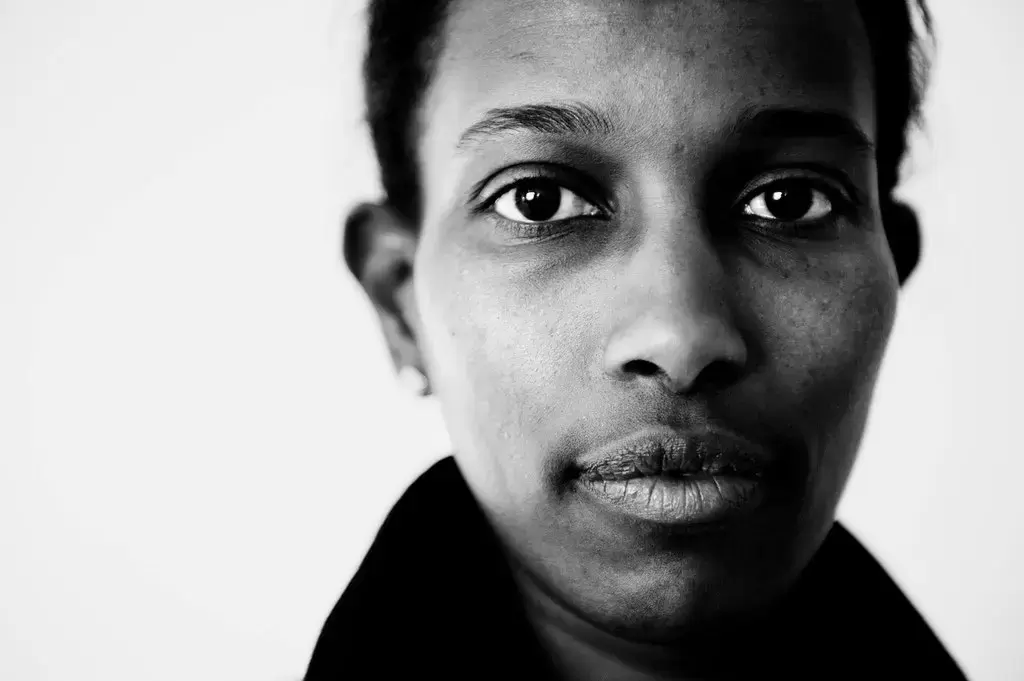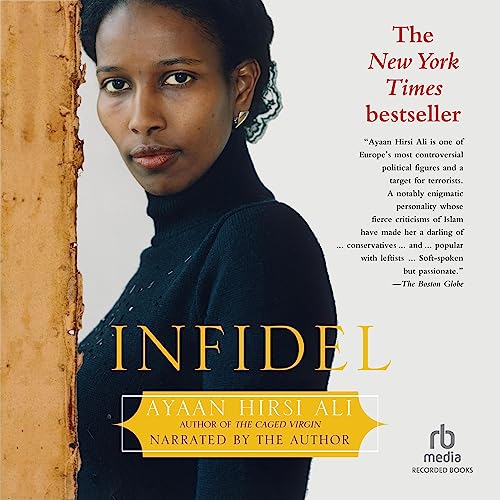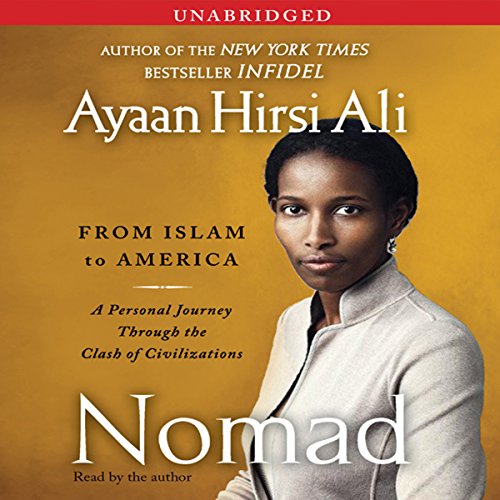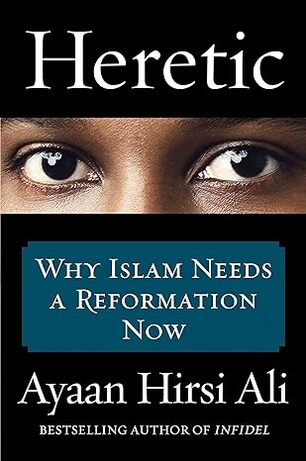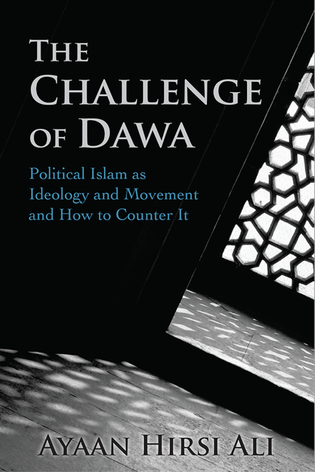- Home
- Process Worldview
- Community
- Art and Music
- Whitehead and Process Thinking
- Podcasts
- Spirituality
- Ecological Civilization
- Education
- Contact
- Social Justice
- Science
- Animals
- Sacred Poems
- Whitehead Videos
- Index of All Titles
- Practicing Process Thought
- Process Spirituality: A Spiritual Alphabet
- Recent Posts
Ayaan Hirsi Ali, the ex-Muslim critic of Islamic fundamentalism and longtime champion of Enlightenment liberalism, has announced that she now calls herself a Christian — a conversion that she attributes to a twofold realization.
First, that atheist materialism is too weak a base upon which to ground Western liberalism in a world where it’s increasingly beset, and the biblical tradition from which the liberal West emerged offers a surer foundation for her values. Second, that despite the sense of liberation from punitive religion that atheism once offered her, in the longer run she found “life without any spiritual solace unendurable.”
- Russ Douthat, Where Does Religion Come From?, NY Times, 11/15/2023
First, that atheist materialism is too weak a base upon which to ground Western liberalism in a world where it’s increasingly beset, and the biblical tradition from which the liberal West emerged offers a surer foundation for her values. Second, that despite the sense of liberation from punitive religion that atheism once offered her, in the longer run she found “life without any spiritual solace unendurable.”
- Russ Douthat, Where Does Religion Come From?, NY Times, 11/15/2023
Summary and Excerpts:
Hirsi Ali's Essay
Ayaan Hirsi Ali is a research fellow at Stanford University’s Hoover Institution, Founder of the AHA Foundation, and host of The Ayaan Hirsi Ali Podcast. Her new book is Prey: Immigration, Islam, and the Erosion of Women’s Rights. In "Why I am now a Christian," she shares her personal journey from atheism to Christianity.
She begins by recounting her initial attraction to Islam during her teenage years when the Muslim Brotherhood entered her community in Nairobi, Kenya, in 1985. Prior to that time, she had found religious practices tedious and pointless. Then the Brotherhood preachers articulated a clear direction, purpose, and method for her faith. They offered a path to Allah's paradise, emphasized adhering to the Prophet's instructions, and glorified martyrdom for the sake of Allah. They offered a persuasive narrative to guide her life, along with a list of "do's" and "dont's" that were easily followed.
The Brotherhood also taught her to hate: to hate the pleasures of life and to hate unbelievers, especially Jews.
Hating the pleasures of life
"The Brotherhood preachers left nothing to the imagination. They gave us a choice. Strive to live by the Prophet’s manual and reap the glorious rewards in the hereafter. On this earth, meanwhile, the greatest achievement possible was to die as a martyr for the sake of Allah...The alternative, indulging in the pleasures of the world, was to earn Allah’s wrath and be condemned to an eternal life in hellfire. Some of the “worldly pleasures” they were decrying included reading novels, listening to music, dancing, and going to the cinema — all of which I was ashamed to admit that I adored." (Ayaan Hirsi Ali)
Hating unbelievers
"During Islamic study sessions, we shared with the preacher in charge of the session our worries. For instance, what should we do about the friends we loved and felt loyal to but who refused to accept our dawa (invitation to the faith)? In response, we were reminded repeatedly about the clarity of the Prophet’s instructions. We were told in no uncertain terms that we could not be loyal to Allah and Muhammad while also maintaining friendships and loyalty towards the unbelievers. If they explicitly rejected our summons to Islam, we were to hate and curse them." (Ayaan Hirsi Ali)
A special hatred of the Jew
"Here, a special hatred was reserved for one subset of unbeliever: the Jew. We cursed the Jews multiple times a day and expressed horror, disgust and anger at the litany of offences he had allegedly committed. The Jew had betrayed our Prophet. He had occupied the Holy Mosque in Jerusalem. He continued to spread corruption of the heart, mind and soul." (Ayaan Hirsi Ali )
Turning to Atheism
She turned to atheism as an alternative to this kind of Islam.
"You can see why, to someone who had been through such a religious schooling, atheism seemed so appealing. Bertrand Russell offered a simple, zero-cost escape from an unbearable life of self-denial and harassment of other people. For him, there was no credible case for the existence of God. Religion, Russell argued, was rooted in fear: “Fear is the basis of the whole thing — fear of the mysterious, fear of defeat, fear of death.”
As an atheist, I thought I would lose that fear. I also found an entirely new circle of friends, as different from the preachers of the Muslim Brotherhood as one could imagine. The more time I spent with them — people such as Christopher Hitchens and Richard Dawkins — the more confident I felt that I had made the right choice. For the atheists were clever. They were also a great deal of fun." (Ayaan Hirsi Ali)
Turning to Christianity
And yet atheism did not work for her, either. Today she turns to Christianity for two reasons. It provides a unifying foundation for Western civilization, safeguarding human life, freedom, and dignity, and argues that atheism is inadequate in addressing the challenges posed by civilizational conflicts. And it offers solace and a sense of personal meaning.
"Yet I would not be truthful if I attributed my embrace of Christianity solely to the realisation that atheism is too weak and divisive a doctrine to fortify us against our menacing foes. I have also turned to Christianity because I ultimately found life without any spiritual solace unendurable — indeed very nearly self-destructive. Atheism failed to answer a simple question: what is the meaning and purpose of life?
The lesson I learned from my years with the Muslim Brotherhood was the power of a unifying story, embedded in the foundational texts of Islam, to attract, engage and mobilise the Muslim masses. Unless we offer something as meaningful, I fear the erosion of our civilisation will continue. And fortunately, there is no need to look for some new-age concoction of medication and mindfulness. Christianity has it all.
That is why I no longer consider myself a Muslim apostate, but a lapsed atheist. Of course, I still have a great deal to learn about Christianity. I discover a little more at church each Sunday. But I have recognised, in my own long journey through a wilderness of fear and self-doubt, that there is a better way to manage the challenges of existence than either Islam or unbelief had to offer."
I encourage you to read her story in full. Click here. If you read with the eyes of process theology, you will see her journey as spiritual pilgrimage in its own right, inspired by the living spirit of God at work in her life and in all lives. This living spirit is not coercive; it cannot force a person into believing in God or in any particular form of religion. It is not itself Christian or Jewish or Muslim or religiously specific. It is freer than that, But it is a spirit of love and creative transformation, as revealed in, but by not reducible to, Jesus of Nazareth. And, as such a spirit, it runs entirely counter the two kinds of hatred Hirsi Ali suffered at the hands of fundamentalism: hatred of life and hatred of "unbelievers." And it is completely alien to a specific hatred of Jews, to antisemitism in any form. Jesus was himself Jewish and much of his ministry was in service to his people. All the early Christians were Jewish.
Is there hope for Islam? In her book Heretic, Ayaan Hirsi Ali speaks of three current movements in Islam: Meccan Islam, Medinan Islam, and Reformist Islam. The Islam that she experienced, she says, was Medinan Islam. It was a politicized Islam She is an apostate to that kind of Islam. And yet, as a Christian today, she supports Reformist Islam. Her idea is that, just as Christianity evolved beyond its dogmatic period, Islam can and should do the same. She yearns for a kind of Islam that is religious, not political, and thus a genuine religion of peace. Politicized Islam, she says, is not that kind of religion. It is a political ideology, masking as a religion, which runs counter to the values of liberal democracy. Liberal democracy is, for her, on the side of life, not death; individual liberty, not mass control; free and critical thinking, not knee-jerk ideological thinking; and, so she adds a Christian, love and forgiveness.
- Jay McDaniel
She begins by recounting her initial attraction to Islam during her teenage years when the Muslim Brotherhood entered her community in Nairobi, Kenya, in 1985. Prior to that time, she had found religious practices tedious and pointless. Then the Brotherhood preachers articulated a clear direction, purpose, and method for her faith. They offered a path to Allah's paradise, emphasized adhering to the Prophet's instructions, and glorified martyrdom for the sake of Allah. They offered a persuasive narrative to guide her life, along with a list of "do's" and "dont's" that were easily followed.
The Brotherhood also taught her to hate: to hate the pleasures of life and to hate unbelievers, especially Jews.
Hating the pleasures of life
"The Brotherhood preachers left nothing to the imagination. They gave us a choice. Strive to live by the Prophet’s manual and reap the glorious rewards in the hereafter. On this earth, meanwhile, the greatest achievement possible was to die as a martyr for the sake of Allah...The alternative, indulging in the pleasures of the world, was to earn Allah’s wrath and be condemned to an eternal life in hellfire. Some of the “worldly pleasures” they were decrying included reading novels, listening to music, dancing, and going to the cinema — all of which I was ashamed to admit that I adored." (Ayaan Hirsi Ali)
Hating unbelievers
"During Islamic study sessions, we shared with the preacher in charge of the session our worries. For instance, what should we do about the friends we loved and felt loyal to but who refused to accept our dawa (invitation to the faith)? In response, we were reminded repeatedly about the clarity of the Prophet’s instructions. We were told in no uncertain terms that we could not be loyal to Allah and Muhammad while also maintaining friendships and loyalty towards the unbelievers. If they explicitly rejected our summons to Islam, we were to hate and curse them." (Ayaan Hirsi Ali)
A special hatred of the Jew
"Here, a special hatred was reserved for one subset of unbeliever: the Jew. We cursed the Jews multiple times a day and expressed horror, disgust and anger at the litany of offences he had allegedly committed. The Jew had betrayed our Prophet. He had occupied the Holy Mosque in Jerusalem. He continued to spread corruption of the heart, mind and soul." (Ayaan Hirsi Ali )
Turning to Atheism
She turned to atheism as an alternative to this kind of Islam.
"You can see why, to someone who had been through such a religious schooling, atheism seemed so appealing. Bertrand Russell offered a simple, zero-cost escape from an unbearable life of self-denial and harassment of other people. For him, there was no credible case for the existence of God. Religion, Russell argued, was rooted in fear: “Fear is the basis of the whole thing — fear of the mysterious, fear of defeat, fear of death.”
As an atheist, I thought I would lose that fear. I also found an entirely new circle of friends, as different from the preachers of the Muslim Brotherhood as one could imagine. The more time I spent with them — people such as Christopher Hitchens and Richard Dawkins — the more confident I felt that I had made the right choice. For the atheists were clever. They were also a great deal of fun." (Ayaan Hirsi Ali)
Turning to Christianity
And yet atheism did not work for her, either. Today she turns to Christianity for two reasons. It provides a unifying foundation for Western civilization, safeguarding human life, freedom, and dignity, and argues that atheism is inadequate in addressing the challenges posed by civilizational conflicts. And it offers solace and a sense of personal meaning.
"Yet I would not be truthful if I attributed my embrace of Christianity solely to the realisation that atheism is too weak and divisive a doctrine to fortify us against our menacing foes. I have also turned to Christianity because I ultimately found life without any spiritual solace unendurable — indeed very nearly self-destructive. Atheism failed to answer a simple question: what is the meaning and purpose of life?
The lesson I learned from my years with the Muslim Brotherhood was the power of a unifying story, embedded in the foundational texts of Islam, to attract, engage and mobilise the Muslim masses. Unless we offer something as meaningful, I fear the erosion of our civilisation will continue. And fortunately, there is no need to look for some new-age concoction of medication and mindfulness. Christianity has it all.
That is why I no longer consider myself a Muslim apostate, but a lapsed atheist. Of course, I still have a great deal to learn about Christianity. I discover a little more at church each Sunday. But I have recognised, in my own long journey through a wilderness of fear and self-doubt, that there is a better way to manage the challenges of existence than either Islam or unbelief had to offer."
I encourage you to read her story in full. Click here. If you read with the eyes of process theology, you will see her journey as spiritual pilgrimage in its own right, inspired by the living spirit of God at work in her life and in all lives. This living spirit is not coercive; it cannot force a person into believing in God or in any particular form of religion. It is not itself Christian or Jewish or Muslim or religiously specific. It is freer than that, But it is a spirit of love and creative transformation, as revealed in, but by not reducible to, Jesus of Nazareth. And, as such a spirit, it runs entirely counter the two kinds of hatred Hirsi Ali suffered at the hands of fundamentalism: hatred of life and hatred of "unbelievers." And it is completely alien to a specific hatred of Jews, to antisemitism in any form. Jesus was himself Jewish and much of his ministry was in service to his people. All the early Christians were Jewish.
Is there hope for Islam? In her book Heretic, Ayaan Hirsi Ali speaks of three current movements in Islam: Meccan Islam, Medinan Islam, and Reformist Islam. The Islam that she experienced, she says, was Medinan Islam. It was a politicized Islam She is an apostate to that kind of Islam. And yet, as a Christian today, she supports Reformist Islam. Her idea is that, just as Christianity evolved beyond its dogmatic period, Islam can and should do the same. She yearns for a kind of Islam that is religious, not political, and thus a genuine religion of peace. Politicized Islam, she says, is not that kind of religion. It is a political ideology, masking as a religion, which runs counter to the values of liberal democracy. Liberal democracy is, for her, on the side of life, not death; individual liberty, not mass control; free and critical thinking, not knee-jerk ideological thinking; and, so she adds a Christian, love and forgiveness.
- Jay McDaniel
Dawa
Ayaan Hirsi Ali joins Peter Robinson to discuss her new book, The Challenge of Dawa: Political Islam as Ideology and Movement and How to Contain It, and her views on the challenges facing Western civilization in regards to political Islam.
She argues that Islam needs to be separated into two different parts, one part of religion and the other part, political philosophy. She concedes that many aspects of the religious part of Islam are peaceful but argues that the political side is much more concerning due to its focus on Dawa, which means “to plead or to call non-Muslims to Islam.” This call to convert people to Islam is what she argues was a driving force behind the spread of Islam throughout history.
Hirsi Ali argues that American political philosophy and classical liberalism are young philosophies in comparison to the fourteen centuries of Islamic political doctrine and that its age and layered-ness are often underestimated by Western minds who are more familiar with younger political philosophies. She discusses the critiques of the philosopher Karl Popper of communism and fascism and how they relate directly to the ideologies of Islam. She argues that the language of appeasement often used toward radical Islamic terrorism is too gentle and that discussions of how to deal with Islam need to be considerably franker.
Earlier this year Ayaan Hirsi Ali was called before Congress to testify on her book The Challenge of Dawa. She discusses her testimony and that although she was invited by a Democrat senator to speak “about the ideology of radical Islam,” the Democrats present didn’t ask her a single question because they were likely uncomfortable with what she had to say about Islam.
She argues that just as Western civilizations have defeated dangerous ideologies in the past, she is optimistic that Western civilization will succeed against political Islam for, as she says, “[Jihadis] can’t destroy us without permission.” She says if we take the fight to the “battlefield of ideas” we can defeat radical Islamic ideologies with Western beliefs.
She argues that Islam needs to be separated into two different parts, one part of religion and the other part, political philosophy. She concedes that many aspects of the religious part of Islam are peaceful but argues that the political side is much more concerning due to its focus on Dawa, which means “to plead or to call non-Muslims to Islam.” This call to convert people to Islam is what she argues was a driving force behind the spread of Islam throughout history.
Hirsi Ali argues that American political philosophy and classical liberalism are young philosophies in comparison to the fourteen centuries of Islamic political doctrine and that its age and layered-ness are often underestimated by Western minds who are more familiar with younger political philosophies. She discusses the critiques of the philosopher Karl Popper of communism and fascism and how they relate directly to the ideologies of Islam. She argues that the language of appeasement often used toward radical Islamic terrorism is too gentle and that discussions of how to deal with Islam need to be considerably franker.
Earlier this year Ayaan Hirsi Ali was called before Congress to testify on her book The Challenge of Dawa. She discusses her testimony and that although she was invited by a Democrat senator to speak “about the ideology of radical Islam,” the Democrats present didn’t ask her a single question because they were likely uncomfortable with what she had to say about Islam.
She argues that just as Western civilizations have defeated dangerous ideologies in the past, she is optimistic that Western civilization will succeed against political Islam for, as she says, “[Jihadis] can’t destroy us without permission.” She says if we take the fight to the “battlefield of ideas” we can defeat radical Islamic ideologies with Western beliefs.
